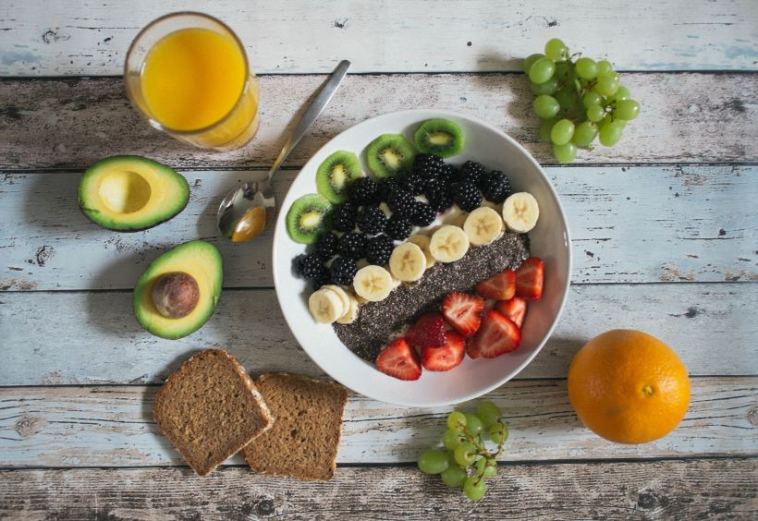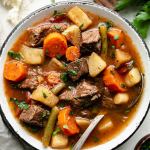- Like
- SHARE
- Digg
- Del
- Tumblr
- VKontakte
- Flattr
- Buffer
- Love This
- Save
- Odnoklassniki
- Meneame
- Blogger
- Amazon
- Yahoo Mail
- Gmail
- AOL
- Newsvine
- HackerNews
- Evernote
- MySpace
- Mail.ru
- Viadeo
- Line
- Comments
- Yummly
- SMS
- Viber
- Telegram
- JOIN
- Skype
- Facebook Messenger
- Kakao
- LiveJournal
- Yammer
- Edgar
- Fintel
- Mix
- Instapaper
- Copy Link
Introduction
Eating sustainably is about so much more than just the food you put in your mouth. It’s about how you get that food and how it’s produced, from farm to market and beyond. By adopting some of these eco-friendly eating habits, you can start making better choices for yourself (and for the planet).
Reduce Your Food Waste
Food waste is a major contributor to climate change and pollution. The Environmental Protection Agency (EPA) estimates that about 30% of the food produced in the U.S. is wasted: in restaurants, grocery stores, and homes. That’s over 130 billion pounds of food thrown away each year!
When we throw away so much food that could otherwise be used for someone else or composting, it rots. Further, it produces methane gas which contributes significantly to climate change. In addition to creating greenhouse gases, we waste valuable resources, including water used during production and packaging materials when we throw out edible food. After learning all these facts about food waste, you might be inspired to start cutting down on how much goes straight into your garbage bin daily.
Eat More Plant-based Foods
Eating more plant-based foods is a great way to reduce your carbon footprint. Not only are they better for the environment, but these foods are also better for your health and wallet. Let’s look at some of the reasons why:
- Plant-based foods are healthy. High in fiber, vitamins, minerals, and antioxidants, plant-based foods help keep you full longer while supporting healthy digestion. This can lead to weight loss if you eat fewer calories than you burn off each day.
- Plant-based foods are better for the environment. When speaking of eco-friendly habits, there aren’t many differences between animals and plants, at least regarding how much water they use. So why not focus on eating veggies instead?
Consider Eating Less Meat
Reducing your meat intake can have several benefits. It’s not just about the environment – it’s also about boosting your mental health, too. The World Health Organization has found that eating less meat is associated with a lower risk for heart disease and type 2 diabetes. This means you’re likely to live longer if you’re not eating so much animal protein. Moreover, meat is pretty expensive. Eating more plant-based foods will help stretch your grocery budget much further.
Another fact you should learn about meat is that it takes up an enormous amount of resources like land, water, and air. This produces a lot of greenhouse gases during its production process (from raising animals to transporting them).
Shop Locally
Supporting local businesses, farmers and economies have an incredible impact on your community. It helps keep dollars in the region, which supports local ecosystems and biodiversity. By shopping for produce at your farmer’s market or buying meat from a small butcher or fishmonger, you’re also supporting local jobs and food security. Since many small producers are required by law to label where their products are grown or raised, you can feel confident that local farmers meet organic standards while reducing environmental impacts on the planet at large.
Avoid Plastic Straws and Utensils
It may seem like a small step, but the average American uses 500 plastic straws each year. While you probably don’t need to count them yourself, it does help to know that every time you order a drink at Starbucks or have a cappuccino in Italy, you are likely using one of the 5 million plastic straws distributed worldwide daily.
The best way to reduce your plastic waste is by simply saying no when offered one of these little tubes of chemical-ridden filth. If this isn’t possible, then buying reusable metal or glass straws is also an option.
Single-use utensils are much less common than their drinking counterparts. However, they still end up in landfills and oceans along with other types of plastic waste. If you regularly eat out or buy takeout food from restaurants that offer plastic cutlery with meals, consider bringing your own set instead next time.
Go Bulk When You Can
Bulk shopping is an easy way to reduce your waste footprint, save money and eat more sustainably. When you shop in bulk, you buy large quantities of the same food item. This way, you can store the food for later use in your pantry or freezer. You’ll also find that some stores that carry bulk foods sell them at a lower price than their packaged counterparts. This is another bonus to adopting this eco-friendly eating habit.
Bulk shopping doesn’t just help the environment. It also helps your wallet by allowing you to buy only what’s needed instead of buying excess packaging when buying individually-packaged items from a grocery store shelf.
There are Many Ways to Eat More Sustainably
Take a look at a few more examples of ways to eat more sustainably:
- You can reduce food waste by purchasing only what you need and eating leftovers before they go bad.
- Try a plant-based diet, which consists of fruits, vegetables, and grains with less meat than typical Western diets.
- Bring your own bags when shopping to avoid using plastic ones at the store.
- Consider preparing meals in advance. For example, you can try this out during a moving process. Just like you can make the process sustainable by engaging in eco-friendly moving, you can do that too with your eating habits. What you need to do is create a meal plan, avoid plastic materials and pack your meals in sustainable containers.
- Avoid straws and utensils when ordering beverages so that they don’t come with a plastic lid or wrapper on them.
Conclusion
We can all do our part to eat more sustainably, and one of the ways you can do it is to develop eco-friendly eating habits. There are so many delicious options for plant-based foods; the good news is that eating less meat will help the planet and your health! All you need to do is look for some healthy online recipes, think before you buy groceries, and take care of the environment!


